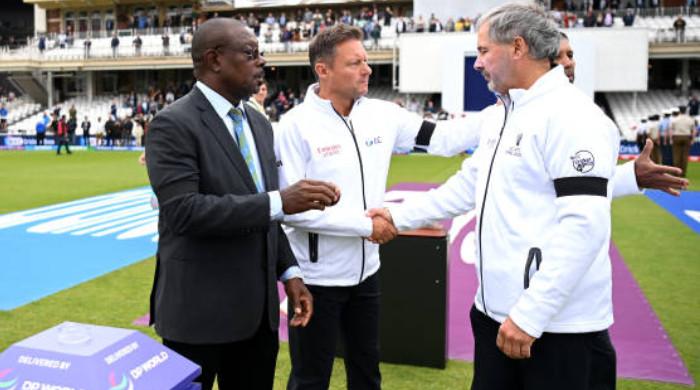ICC Announces Key Changes to Playing Conditions
The International Cricket Council (ICC) has sanctioned a set of noteworthy alterations to its playing regulations for international men’s cricket, affecting all formats of the game.
While several regulations are already in place for the 2025-27 World Test Championship (WTC) cycle, adjustments pertinent to white-ball cricket will be effective from July 2.
Stop Clock Implementation in Test Cricket
Following its initial use in limited-overs matches, the stop clock will now be employed in Test cricket to address concerns about slow over rates. Teams fielding must be prepared to commence a new over within 60 seconds after the conclusion of the previous one.
Umpires will issue two warnings before levying a penalty of five runs for each subsequent breach. The warning count will reset every 80 overs, with the countdown displayed from 0 to 60 seconds. This regulation is currently active in the ongoing WTC cycle.
Amended Saliva Regulation
Despite the continued prohibition on using saliva to polish the ball, umpires are now not mandated to instantly replace the ball if saliva is applied.
This modification seeks to discourage teams from purposefully using saliva to influence ball replacements. Umpires will now evaluate whether the ball’s condition has notably changed; if it hasn’t, play will proceed.
However, should the ball later behave unexpectedly, and it’s determined that the saliva did not alter its condition, the batting team will be granted five runs, but the ball will not be substituted.
DRS Revision: Secondary Dismissal Modes
In the past, if a batter was ruled out caught, and the review indicated no bat involvement, the secondary mode of dismissal (e.g., lbw) would automatically revert to “not out” in DRS.
The procedure has been updated. Now, if ball-tracking displays an “umpire’s call” on an lbw assessment after the initial caught ruling is overturned, the batter will remain out, since the original ruling was “out.”
Sequential Review Order in Combined Appeals
In scenarios involving multiple appeal types (e.g., lbw and run-out), reviews will now be conducted in the order in which the events transpired. Previously, umpire reviews took precedence over player reviews.
Under the updated rule, if the initial incident results in a dismissal, the ball is deemed dead, and the subsequent incident will not undergo review. This aims to ensure a consistent and equitable review process.
Fair Catch Assessment After No-Ball Declaration
If a no-ball is declared during a catch consideration, the fairness of the catch will still be examined by the TV umpire. If the catch is deemed fair, the batting side will only receive the no-ball run. If the catch is considered unfair, they will be awarded any runs completed.
Enhanced Penalties for Intentional Short Runs
The ICC has strengthened its stance regarding intentional short runs. In addition to a five-run penalty, umpires will now grant the fielding captain the prerogative to choose which batter remains on strike if one of the batters is found to have intentionally failed to ground their bat to gain an extra run.
The definition of an intentional short run is explicitly outlined under Rule 18.5.1.
Rule 18.5.1
“An intentional short run is an effort by batters to appear to run more than one run, while at least one batter intentionally does not make good their ground at one end,” states Rule 18.5.1 of the playing conditions.
“Batters may opt to abandon a run, provided the umpire is convinced that there was no intent by the batter in question to deceive the umpires or to score the run in which they didn’t make their ground.”
Trials for Full-Time Playing Substitutes in Domestic First-Class Cricket
To address injuries caused by external factors, the ICC has encouraged member boards to trial full-time player substitutes in domestic first-class matches. The substitute must be a like-for-like replacement, akin to concussion substitutes.
The injury must be evident and confirmed by match officials. This rule will not apply to soft-tissue injuries, such as hamstring pulls or minor strains, and will be implemented on a trial basis at the discretion of individual boards.



Comments (0)
No comments yet. Be the first to comment!
Leave a Comment